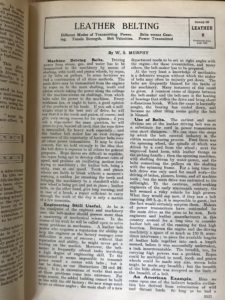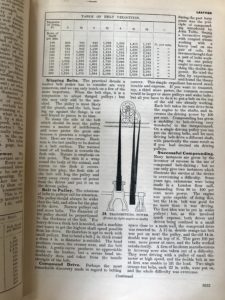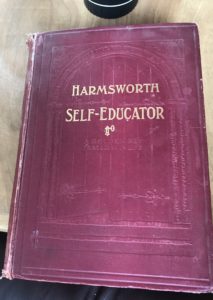I try, always, to maintain the habit of entertaining ideas without necessarily marrying myself to them.
I read something along those lines once in a cleverly captioned photo on facebook once, and decided it was a worthy maxim to live by. Could have been written by a complete lunatic whose only thirst was for my soul, I suppose. I don’t know. But it sounds nice, and so I try to live by it.
Alas, as it often turns out, the attempt at self-righteousness exposes dirty little secrets sometimes. As it turns out, I’m not really that noble a creature.
I really do enjoy being able to banter and touch base with people I’ve known across the years. I do it to excess, sure, but then, my great-grandmother spent 3-4 hours a day writing letters, so…it’s in my genes, you might say. She would have been an early facebook adopter (she passed in the late ’80’s). She was incredibly literate, wrote letters, good gosh she knew EVERYONE. Her mailbox was almost always full (you know, that metal thing out by the curb). She also wrote poems, stories (mostly religious in nature) collected news snippets and sent them to friends by clipping them out of newspapers, or magazines. Her letters were always articulate. Especially the ones where she sent me cash. As a kid, I always understood those best.  She made notebooks of poems and sent them to all her grandkids. Several years ago I remember showing my dad one she had sent me in high school. He went and pulled out his, and told me all the kids, grand-kids, and great-grandkids had one – and each one was slightly different. it was then I realized the scope of the volume of print that she produced.  She sent pictures every so often, although most of the photos she had were on slide film, and the only way to see the albums, which my great-grandpa fastidiously prepared, was to go over to their house. I would alternately help grandma make popcorn and root beer floats, help grandpa set up the screen and projector, darken the lights, settle under a blanket beside the popcorn tin, and watch the slides while Grandpa tried to narrate the show. I say “triedâ€, because Grandma would more often than not correct him on details until he got so frustrated he would heave a sigh, say, “oh, dear†in a way that made you feel like he was going to set fire to the projector.
That’s how news, and history, and love, got passed around in my family. I still own a slide projector. Well, I don’t really, I borrowed it from my mom once, but unless she specifically asks for it it’s unlikely I’ll ever remember to take it back.
So this evening, as is my habit, I pondered a few posts by friends, and thought a little about what my great-grandma would think of what we have now, and of how I treat Facebook in a similar way to the way she treated having friends all over the world. She wouldn’t be much of a game-player…well, she’d be the ruling scrabble champion of course (she called it “anagramsâ€), but by now she’d have set all the records and the game would have locked her out.
My Grandpa, on the other hand, would have handled the politics crowd. But you’d never know it, because he’d read the posts, heave a heavy sigh of frustration and/or disgust, and go out and tend his garden. Gardening is the only really useful place to deal with manure.
And with this in mind this evening, I saw, as I often do, some of the political posts going around. I picked up one, something about a purported list of ‘ways to destroy the United Statesâ€, supposedly a list from no less than Vladimir Lenin. The list itself is a hoax. I’ve seen it before, and usually I go about debunking the hoax, and either leaving it at that, or bantering back and forth with the hoaxee, or their friends, who come to their defense. But in this case, instead I followed some of the links to links to links to links, to see exactly what it was Lenin seemed to have thought on the subject. I found one commenter in a forum who pointed out that while it was indeed a hoax, that the list was something Lenin addressed, more or less indirectly, not as a plan of his own but as an indictment of the elite of his day. And so, by that means, I found myself actually reading for some time the words of Lenin himself.
If you know me slightly, you might find this surprising. I spent some years in the submarine force, and am relatively staunch in my support and pride in these here United States. Sure, we have issues, but my pride in this country runs deep, and being a submariner during the Cold War makes reading Lenin akin to a minister reading Playboy. It’s just not done. If you know me well, however, you expected this. I’ll listen to anyone, spend a short time all agog at the newest ideas, but then as reason returns, I usually realize the futility of the hype. It’s a vicious cycle, but well…there it is.
It didn’t take long for me to realize the first of two major revelations. Lenin, in his defense of Marx, seemed to have done a lot of thinking about the interactions of the society in which he lived, especially in the dealings between the rich and the poor. As I have in my heart a soft spot for the disadvantaged, I found myself feeling a little sympathetic to his repeated tirades against the “richâ€, and the system that makes them so.
And then I remembered my creed – to feel free to entertain, but not to feel compelled to marry. I stopped reading, and started ruminating.
Just yesterday, I finished watching a show on the life of Thomas Jefferson. He’s always been one of my favorite American Patriots. Somehow, the two men – Lenin and Jefferson – began a conversation in my head. It started with an ardent Lenin pointing at the wretchedness of his society’s condition, and the subsequent accusation of his country’s elite, the “Bourgeoisie†as he called them. Jefferson smiled in sympathetic understanding. Back and forth it went for a while, until Jefferson pointed at Lenin’s legacy, something that voices in my head can do that real, historic dead guys can’t. He did it in classic prophtetic style, even though it condemned himself as well:
“If once they become inattentive to the public affairs, you and I, and Congress, and Assemblies, judges and governors shall all become wolves.â€
– Thomas Jefferson, in a letter to Edward Carrington, January 16, 1787
Lenin was a reasonably smart guy. He certainly was self-assured, and believed in his cause. What he had in gifts, however, was his downfall. Jefferson’s brilliance was not in his intellect, but his acceptance of the one fact that brings down every empire.
We are all jerks.
What Jefferson accepted was that sooner or later, every one of us can, and given the opportunity will, become a jerk, a tyrant, an abuser of other human beings. We will, given the chance, throw our fellow man under the carriage.
What Lenin observed wasn’t necessarily wrong, but his solution expects that a righteous cause will succeed simply because it is righteous, and that if the cause is righteous, the people under it can’t help but become righteous too. But his country became one of the most brutal regimes in modern history. Worse, in some ways, than the Nazis. Jefferson, and other patriots like Ben Franklin, realized that with all this talk of freedom and throwing off chains etc., that it had to be understood that no man was capable of remaining righteous in the face of the right temptation, and that as often as not a good man could be turned to bad when the avenging sword is a little too successful a weapon. The Holy Crusades were, in the end, still about men with swords killing innocent people to own a piece of land.
We hear a lot about the wonders of our modern society, of the pleasant aspirations of some in our culture who see a vision of peace and prosperity where weapons are of no use, where harmony abounds and poverty is but a fading memory, because we have managed to end it through ideals that work out neatly on paper.
But paper has a problem. It fades. It never tells the whole story. Every article in every clipping you can produce will only tell a portion of the truth. And as painful as it is to accept, the part that will almost always be left out of every epic conquest is how big a jerk the conquistador was, when that conquistador is the one telling the story.
I loved my great-grandmother. She read stories to me – a LOT of stories. She took my dad and I in during a tragic chapter of our lives, when I was very small. She always thought what I did was brilliant, everything was better than any other child in the history of childhood. I was a concert pianist. I was a master engineer. I was a cunning apple-thief, and by golly if I could steal apples that well, then I should have apple pie.
My great-grandfather, on the other hand, was a quiet, circumspect man. When I showed him my piece de triomphe, whatever it may be at the moment, he would smile, but little more. He would give me the dignity of looking it over with a critical eye – not a jaded eye, but an honest, critical, lets-have-a-look-at-what-you’ve-built-there kind of dignity, that neither guaranteed approval, nor betrayed any expectation of failure. His appraisals were gentle but honest, and held more value to me than the words of God himself to my child’s mind.
Men like my great-grandfather do not seek power. They do not run for office. They do things they believe in, but seek no glory for themselves, and never get it. What he wanted out of life was to enjoy the love of his family, the fruits of his labor (literally. You should have seen him tending his cherry tree). His contrast with the life of Lenin couldn’t be more stark. But make no mistake, had he been given the wealth of a lord, he would have been a different man. Had he been given the power of a king, he could have been a tyrant. What he knew to do, in order to remain a decent man, was to remain humble, to remain a man of modest but sufficient means, and to not seek the adulation of others.
My natural personality tends to draw attention to itself. I know, by this, exactly through what means the wolf will enter me. And as I turn my eyes to those who seek office, I remember that they too are quite likely the same, that the men who established the principles of this country expected them to be the same as I, and sought in the words they used to describe the powers – and limitations – of the government they formed, not to triumph with ideals, but to prepare us for the worst that mankind could offer. Lenin hoped for the best, and you know…good for him, it’s good to dream big. But he also planned for the best, and as a submariner, I can tell you…sooner or later that’s going to get you in deep, deep trouble.
Repeat after me:
- I have within me the capacity to be an absolute tyrannical jerk
- Given the opportunity, I will ride my fellow man’s back like a rented mule, yank the gold fillings from his very teeth, draw devils horns and a sharpie mustache on his sports team’s logo (unless that logo involves a devil, in which case I’ll draw a halo over its head and perhaps a cartoonish depiction of the virgin mary), steal his tropical goldfish from the pond in his back yard and eat his dogs if they try to stop me.
- the first Patriots of this country foresaw this penchant of mine in their own time, and rather than write the constitution of this government with the hope of reaching a Utopian ideal, made sure that in the end neither I nor the myriad other jerks could really grow to full size.
- While sometimes I want to konk my neighbor over the head for being an idiot, I’m glad I’m not allowed to make too big a fool of myself, after all. Turns out I’m not always as brilliant a genius as I think I am, and it’s nice to be unable to run too far with the fallacy that I am.
Like this:
Like Loading...

 Filed Under :
Filed Under :  Nov.25,2018
Nov.25,2018




 Tags :
Tags : 






